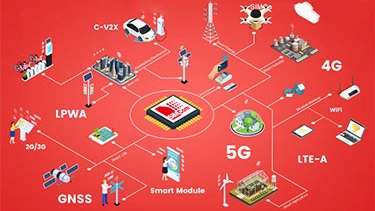Car Wi-Fi shipments projected to soar
SAN FRANCISCO—Shipments of built-in car Wi-Fi systems are set to soar
by more than 40 fold by 2017, as automakers increasingly view wireless
connectivity as a key competitive differentiator, according to market
research firm iSuppli Corp., which is now part of business intelligence
provider IHS Inc.
Worldwide automotive original equipment
manufacturer (OEM) shipments of Wi-Fi systems will rise to 7.2 million
units in 2017, up from just 174,000 in 2010, according to iSuppli's
forecast
According to Stacey Oh, an analyst and regional manager
for Asia automotive research at iSuppli, major OEMs are noticeably
incorporating Wi-Fi system into new-model releases. "Whereas Wi-Fi was
an aftermarket accessory in the past, OEMs now are touting it as a key
offering," Oh said.
On Monday (Nov. 22), rival
market research firm In-Stat issued a report that found that cars will
increasingly become mobile hot spots, generating Wi-Fi chip revenues of
$100 million by 2015. The wireless autos will make up a drop in the
bucket of what In-Stat anticipates will be a billion unit market for
Wi-Fi chips by 2012.
ISuppli (El Segundo, Calif.) noted that Ford
Motor Co. is turning its vehicles into Wi-Fi hot spots with the next
generation of its Sync in-car connectivity system. MyFord is able to
incorporate in-car Wi-Fi connectivity, powered by any customer’s
existing USB mobile broadband modem, reducing cost for the consumer and
the OEM and requiring less space in the vehicle for a modem, iSuppli
said.
Meanwhile, European OEMs are taking a different route, iSuppli
said. Marvell Technology and Harman Automotive in August announced
integrated Wi-Fi connectivity via Marvell Mobile Hotspot technology,
with the 2010 Audi A8 as the first vehicle on the market to feature the
factory-installed mobile hotspot, iSuppli said.
"Wi-Fi gives OEMs
a competitive advantage," Oh said. "Staying connected is important to
users and can improve the overall in-vehicle experience. And as Sync has
elevated Ford’s image as a cutting-edge technology brand, OEMs probably
want their brands to be associated with Wi-Fi to at least be relevant
in this connected era."

















